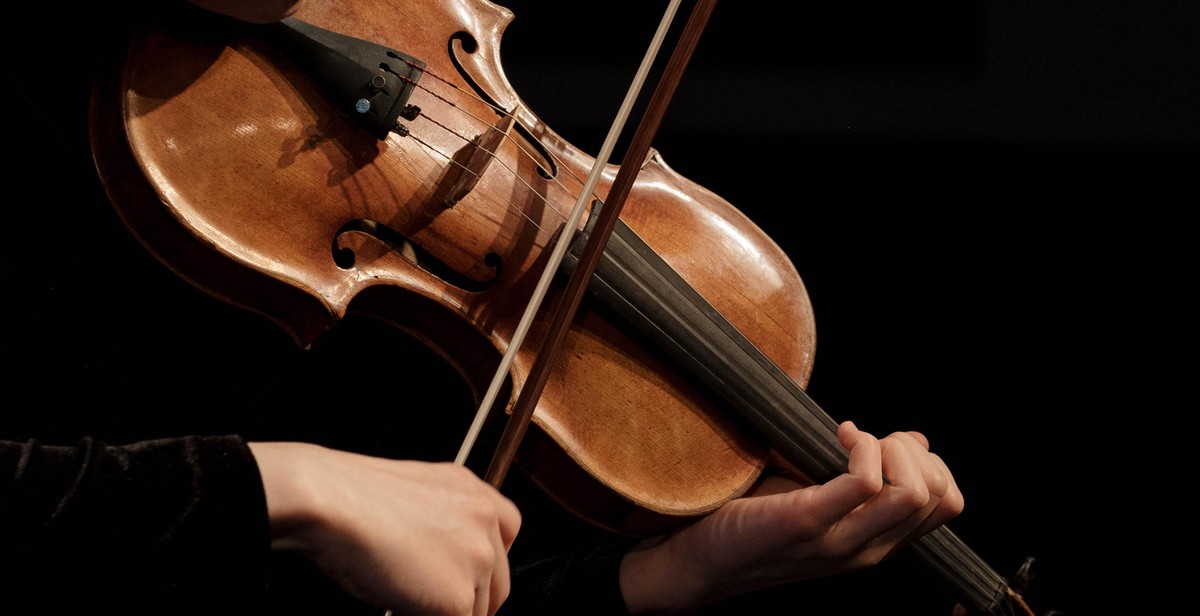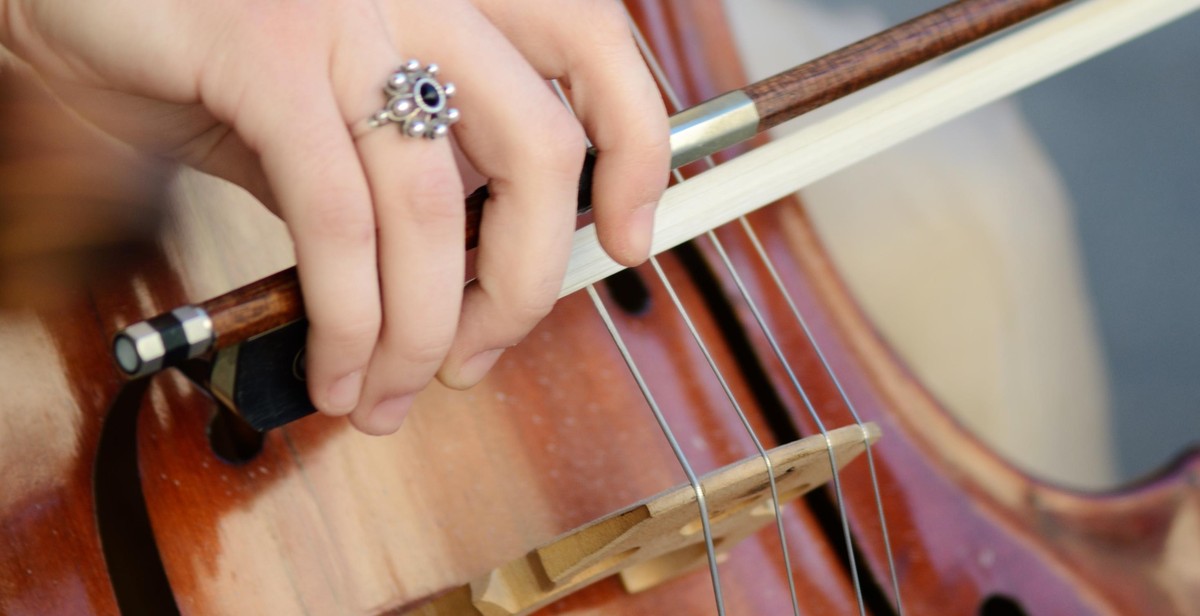How to Choose the Right Violin for Your Playing Level and Sound Preferences
Choosing the right violin is a crucial decision for any musician, whether you are a beginner or a professional. The right instrument can make all the difference in your playing experience and can help you achieve your desired sound preferences.
When choosing a violin, it’s important to consider your playing level and your sound preferences. A beginner violinist will have different needs than an advanced player, and the type of violin that suits one person may not be right for another.
Why Choosing the Right Violin is Important
Choosing the right violin is important for several reasons. Firstly, the right instrument can help you achieve your desired sound preferences. Different violins have different tonal qualities, and finding the right one for you can help you achieve the sound you are looking for.
Secondly, choosing the right violin can make playing easier and more enjoyable. A poorly made or poorly fitted instrument can make playing difficult and uncomfortable, which can be discouraging for beginners and frustrating for professionals.
Lastly, choosing the right violin can be a long-term investment. A high-quality instrument can last a lifetime and even appreciate in value over time.
In the following sections, we will discuss the factors to consider when choosing a violin, including your playing level, sound preferences, and budget.

Playing Level
When it comes to choosing the right violin, your playing level is a crucial factor to consider. Violins are designed to cater to different skill levels, and selecting the wrong one can significantly hinder your progress as a musician. Below are the three primary playing levels that you should keep in mind when choosing a violin:
Beginner
If you are just starting out as a violinist, it is essential to choose a beginner-friendly violin. Such violins are designed to be easy to play and are usually more affordable than intermediate and advanced-level violins. They are also designed to produce a warm and inviting sound that is perfect for beginners.
When choosing a beginner violin, you should look for one that is made from high-quality materials and has a solid construction. You should also consider the size of the violin, as it should fit you comfortably to ensure that you can play it with ease.
Intermediate
Intermediate-level violins are designed for musicians who have some experience playing the violin and are looking to take their skills to the next level. These violins are usually made from better quality materials than beginner violins and are designed to produce a more nuanced and refined sound.
When choosing an intermediate-level violin, you should look for one that has a more complex sound than a beginner violin. You should also consider the craftsmanship of the violin, as it should be well-made and durable enough to withstand regular use.
Advanced
Advanced-level violins are designed for professional musicians and serious students who have years of experience playing the violin. These violins are made from the highest quality materials and are designed to produce a rich and complex sound that is perfect for concert performances.
When choosing an advanced-level violin, you should look for one that has an exceptional sound quality and is made by a reputable violin maker. You should also consider the finer details of the violin, such as the quality of the wood and the craftsmanship of the instrument.
| Level | Materials | Sound Quality | Price Range |
|---|---|---|---|
| Beginner | Laminated wood, plastic, or composite materials | Warm and inviting | $100 – $500 |
| Intermediate | Solid wood, better quality materials | Nuanced and refined | $500 – $5,000 |
| Advanced | Finest quality wood and materials | Rich and complex | $5,000 – $100,000+ |

Sound Preferences
When it comes to choosing the right violin, your sound preferences play a crucial role. The sound of a violin can be described in terms of its brightness, warmth, and darkness.
Bright Sound
A bright sound is characterized by a clear and focused tone with a lot of projection. If you prefer a bright sound, look for violins that have a higher arching on the top and back plates, a lighter build, and strings that are brighter in tone, such as steel strings. A bright sound is ideal for players who want their playing to be heard in a large auditorium or orchestra.
Warm Sound
A warm sound is characterized by a mellow and rich tone with a lot of depth. If you prefer a warm sound, look for violins that have a lower arching on the top and back plates, a thicker build, and strings that are warmer in tone, such as gut or synthetic core strings. A warm sound is ideal for players who want a more intimate and expressive sound.
Dark Sound
A dark sound is characterized by a deep and velvety tone with a lot of resonance. If you prefer a dark sound, look for violins that have a flatter arching on the top and back plates, a heavier build, and strings that are darker in tone, such as gut or synthetic core strings. A dark sound is ideal for players who want a more dramatic and emotional sound.
| Sound Preference | Characteristics | Ideal for |
|---|---|---|
| Bright | Clear, focused, and projected tone | Large auditorium or orchestra |
| Warm | Mellow, rich, and deep tone | Intimate and expressive playing |
| Dark | Deep, velvety, and resonant tone | Dramatic and emotional playing |
Ultimately, the sound preference you choose will depend on your personal taste and the type of music you plan to play. It’s important to try out different violins and strings to find the sound that best suits your playing level and style.

Factors to Consider When Choosing a Violin
Choosing the right violin can be a daunting task, especially for beginners who are just starting out. However, it is important to consider a few factors that will help you make an informed decision. Here are some of the key factors to consider when choosing a violin:
Price
Price is a major consideration when choosing a violin. Violins can range from a few hundred dollars to tens of thousands of dollars. As a beginner, it is recommended to choose a violin that is within your budget. However, keep in mind that the cheapest violin may not always be the best option. It is important to find a balance between price and quality.
Brand
The brand of the violin is also an important consideration. Some brands are known for their quality and craftsmanship, while others may be less reputable. It is recommended to do some research on the different brands available in the market and read reviews from other musicians before making a decision.
Size
The size of the violin is also an important consideration, especially for beginners. Violins come in different sizes, ranging from 1/16 to 4/4. It is important to choose a violin that is the right size for you. A violin that is too big or too small can affect your playing and may cause discomfort.
Materials
The materials used to make the violin can also affect its sound quality. Violins can be made from different types of wood, including spruce, maple, and ebony. The quality of the wood used can affect the sound of the violin. It is recommended to choose a violin that is made from high-quality materials.
Craftsmanship
The craftsmanship of the violin is also an important consideration. A well-crafted violin will produce a better sound and will be more durable than a poorly crafted one. It is recommended to inspect the violin carefully before making a purchase and to choose a reputable dealer or luthier.
| Factors | Considerations |
|---|---|
| Price | Choose a violin that is within your budget |
| Brand | Choose a reputable brand with good reviews from other musicians |
| Size | Choose a violin that is the right size for you |
| Materials | Choose a violin that is made from high-quality materials |
| Craftsmanship | Choose a well-crafted violin from a reputable dealer or luthier |

Where to Find the Right Violin
Whether you are a beginner or an advanced player, finding the right violin can be a daunting task. There are many factors to consider, such as your playing level and sound preferences. Here are some options for where to find the right violin:
Music Stores
Music stores are a great place to start your search for a violin. They typically have a wide selection of instruments, ranging from beginner to professional levels. You can try out different violins and get a feel for the sound and playability. Music stores also often have knowledgeable staff who can help you find the right instrument for your needs.
Online Retailers
Online retailers offer a convenient way to shop for a violin from the comfort of your own home. There are many reputable online retailers that specialize in string instruments, such as Shar Music and Southwest Strings. You can read reviews and compare prices to find the best deal. However, it is important to be cautious when buying a violin online, as you cannot try it out before purchasing.
Private Sellers
Private sellers can be a good option for finding a used or vintage violin. You can often find listings on websites such as Craigslist or Facebook Marketplace. It is important to be cautious when buying from a private seller, as you may not know the history of the instrument. It is recommended to have the violin inspected by a professional before purchasing.
Conclusion
There are many options for where to find the right violin. Whether you choose to shop at a music store, online retailer, or from a private seller, it is important to do your research and consider your individual needs and preferences.

Conclusion
Choosing the right violin can be a daunting task, but it is essential to finding an instrument that suits your playing level and sound preferences. From beginner to professional, there are violins available to fit every need and budget.
Consider your playing level
Beginners should look for a violin that is easy to play and produces a good sound. Intermediate players should look for a violin that offers more projection and tonal complexity. Advanced players should look for a violin that can handle the demands of virtuosic playing.
Consider your sound preferences
Sound is subjective, but it is important to find a violin that produces a sound that you enjoy. Some violins are warm and mellow, while others are bright and focused. It is important to try out different violins to find the one that matches your sound preferences.
Try before you buy
It is crucial to try out a violin before making a purchase. This allows you to get a feel for the instrument and ensure that it meets your needs. If possible, try out several violins before making a decision.
Invest in a quality instrument
A quality violin is an investment that can last a lifetime. While it may be tempting to opt for a cheaper instrument, a quality violin will produce a better sound and be more enjoyable to play.
By considering your playing level, sound preferences, and investing in a quality instrument, you can find the right violin for your needs and enjoy playing for years to come.
